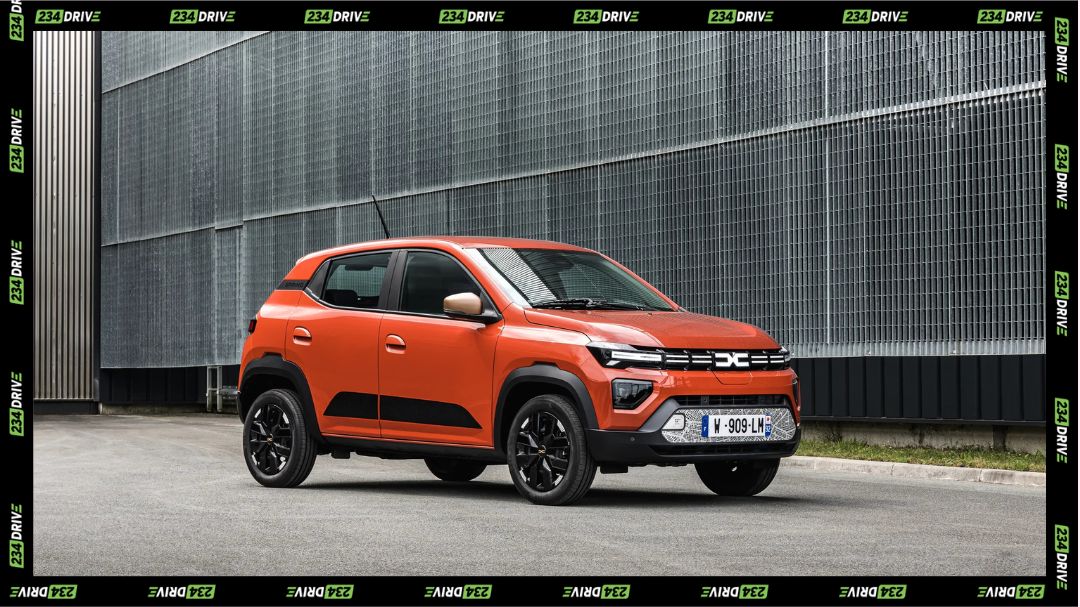Luxury vehicles remain a strong status symbol in Nigeria, with models like the Range Rover Evoque, Mercedes-Benz G-Class, BMW X5, Audi Q5, and Porsche Macan leading the market. These cars appeal to buyers for their prestige, advanced technology, and strong performance. However, they also fall under the category of the most expensive luxury cars to maintain, especially in a country where parts are imported and road conditions are challenging.
Globally, annual maintenance costs for luxury cars of this type range from $1,000 to $2,000 (₦1.48 million to ₦2.96 million). In Nigeria, the expenses translate to a similar range in naira, with the actual figure depending on import duties, currency rates, and mechanic availability. This article explores why these vehicles remain among the most expensive to maintain, breaking down their design, performance, recurring issues, and ownership realities in Nigeria.
Range Rover Evoque
The Range Rover Evoque combines urban sophistication with off-road roots. Its aerodynamic styling, LED headlights, and sleek lines make it a fashionable choice in cities like Lagos and Abuja. Despite its compact design, it maintains a strong presence on Nigerian roads.

Inside, the Evoque features premium leather, dual-zone climate control, and an 11.4-inch touchscreen running Pivi Pro. Powered by a 246-hp turbocharged engine, it accelerates from 0-60 mph in 7.1 seconds. Maintenance costs can surpass ₦1.5 million yearly due to turbocharger failures, oil leaks, and imported parts. This makes the Evoque one of the most expensive luxury cars to maintain in Nigeria.
Mercedes-Benz G-Class
The G-Class is instantly recognisable for its iconic boxy design and AMG grille styling. It is a high-prestige SUV often associated with wealth and exclusivity in Nigeria. Its rugged build also makes it suitable for both highways and rural terrains.

Luxury dominates the G-Class interior, with heated nappa leather seats, Burmester audio, and a 12.3-inch infotainment system. The 443-hp turbocharged hybrid engine hits 0-60 mph in 5 seconds, making it powerful and fast. However, maintenance is very expensive, with major repairs sometimes reaching ₦20 million. Suspension issues and electrical faults are common, cementing the G-Class as one of the most expensive luxury SUVs to maintain.
BMW X5
The BMW X5 stands out for its sporty design and strong road appeal. Its LED headlights, panoramic sunroof, and muscular stance make it a premium choice for Nigerian families seeking performance and prestige.

The X5 features a spacious, technology-rich interior with a curved 14.9-inch display and ambient lighting. Its 375-hp turbo inline-six engine pushes 0-60 mph in 4.4 seconds. Nigerian maintenance costs range from ₦1.2 to ₦1.9 million annually, driven by water pump failures, oil leaks, and air suspension repairs. These costs keep the X5 firmly in the “most expensive luxury cars to maintain” group.
Audi Q5
The Audi Q5 blends sleek styling with practicality. Compact yet premium, it appeals to Nigerian buyers who want modern design and reliability. Its refreshed look and signature Audi grille make it an attractive option in the compact luxury SUV class.

The Q5 delivers advanced technology, offering up to three digital screens and premium Bang & Olufsen audio. A 268-hp turbo engine delivers 0-60 mph in 5.5 seconds. Globally, the Q5 averages $928 in yearly maintenance, but Nigerian costs climb to ₦1 million or more due to oil consumption issues and transmission repairs. Though less costly than a G-Class, it still counts as one of Nigeria’s expensive luxury cars to maintain.
Porsche Macan
The Porsche Macan provides a sporty alternative to traditional SUVs, with aggressive styling and strong road presence. Its sleek profile and Porsche badge ensure instant recognition on Nigerian roads.

Inside, the Macan offers power-adjustable seats, a 10.9-inch infotainment display, and premium trim finishes. Its 261-hp base engine accelerates to 60 mph in 5 seconds. Owners face annual repair costs around ₦1.5 million, with common issues including brake wear and coolant leaks. These expenses rank the Macan among the most expensive luxury cars to maintain in Nigeria.
Ownership Realities in Nigeria
Owning these luxury vehicles in Nigeria involves balancing prestige with practicality. Bad road conditions lead to rapid suspension wear, while fuel quality affects engine performance. Parts are imported, often delayed, and sometimes marked up by 200–300%. Skilled mechanics are concentrated in Lagos and Abuja, leaving owners in smaller urban cities at a disadvantage.
Despite these challenges, these vehicles remain attractive for their comfort, advanced safety, and status appeal. They suit urban commutes and long-distance travel but require consistent servicing and preventive maintenance to stay reliable.
Competitive Positioning and Rivals
Each of these vehicles faces strong competition in its segment. The Range Rover Evoque competes with the BMW X3 and Audi Q5, but higher maintenance costs make it less attractive for budget-conscious owners. The G-Class outshines the Lexus LX in prestige but falls behind in affordability. The BMW X5 offers balanced performance and resale value compared to rivals like the Volvo XC90. The Audi Q5 excels in technology but faces long-term reliability concerns against Lexus RX models. The Porsche Macan delivers unique sportiness, rivalled only by Jaguar F-Pace, but comes with steeper ownership costs.
In terms of resale value, BMW and Mercedes-Benz dominate, while Land Rover and Audi depreciate faster. Maintenance costs across all brands remain high, securing their position as the most expensive luxury cars to maintain.
Conclusion
The Range Rover Evoque, Mercedes-Benz G-Class, BMW X5, Audi Q5, and Porsche Macan show why many consider them the most expensive luxury cars to maintain in Nigeria. While they deliver world-class engineering, comfort, and prestige, their ownership requires financial preparedness and careful maintenance planning. For Nigerian buyers, these cars remain aspirational symbols of success, but understanding their true costs is important before making a purchase. Which of these models do you think justifies the cost of ownership in Nigeria?









